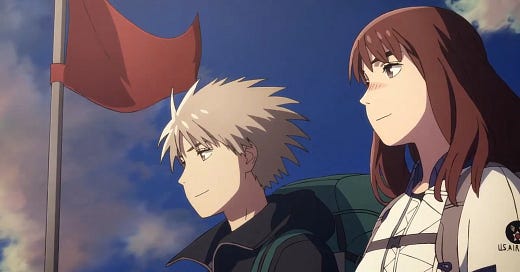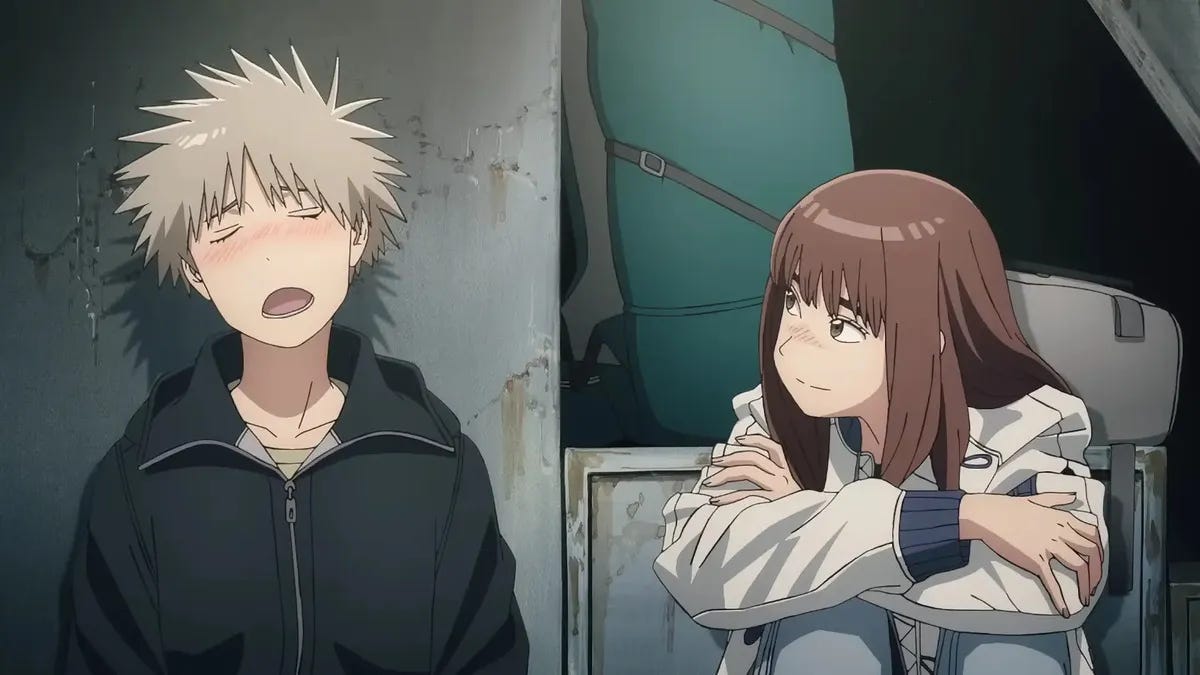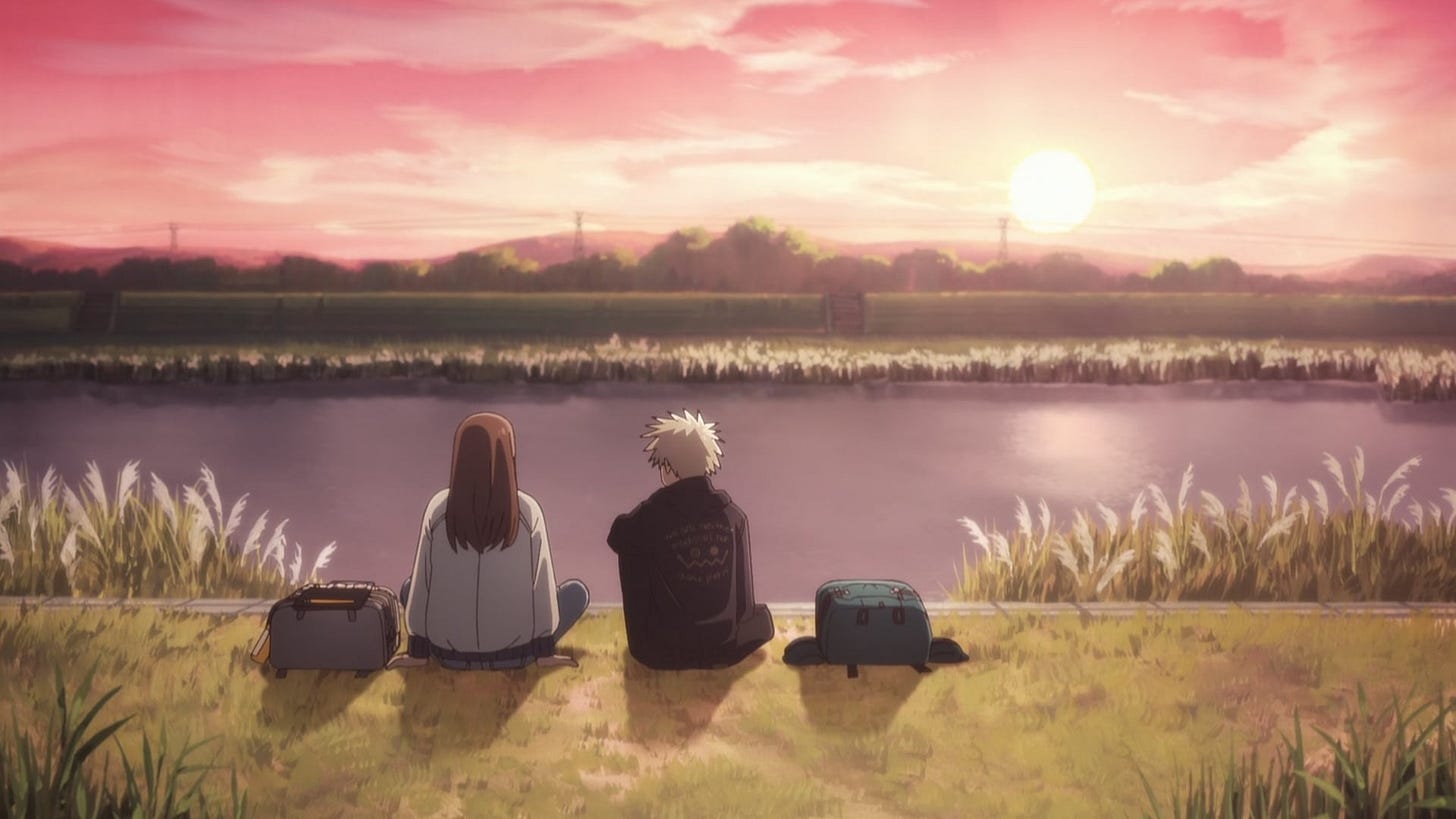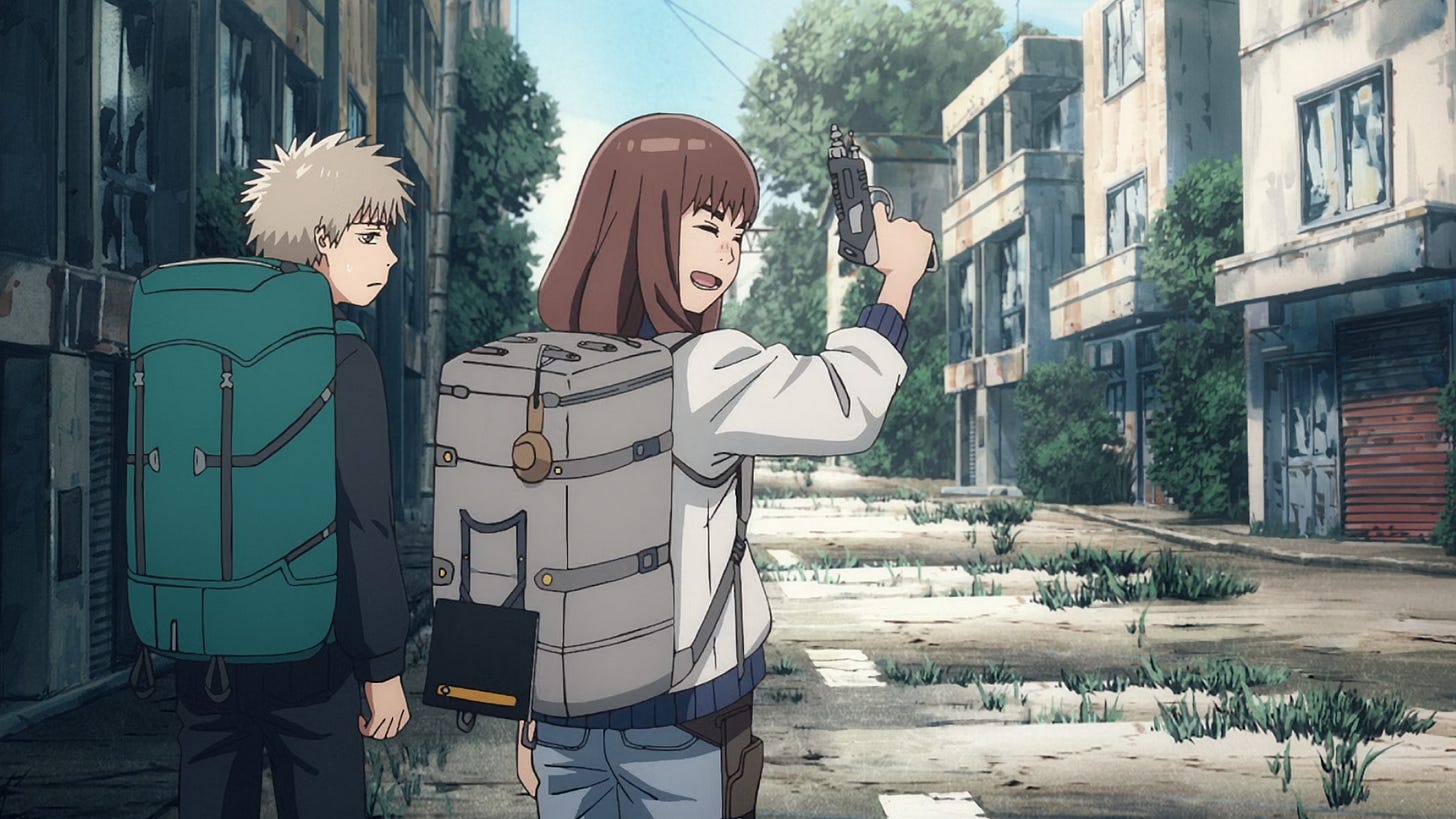Welcome to my first post! I’ll give every post a Spoiler Rating out of 10 - for this post, I rate it 2/10: General Discussion Only
It’s been a while since we’ve had a really substantial, masterfully crafted science fiction anime - its pretty rare nowadays.
I’m talking works like Akira. Neon Genesis Evangelion. Steins Gate. Ghost in the Shell. The recently released Pluto, created by the great Naoki Urasawa & Tezuka Osamu.
The list goes on, but withholding Pluto, which dropped this last October 26th, none are very recent. One might consider Cyberpunk Edgerunners in this list, and while it definitely holds up as a superb modern sci-fi, it’s not entirely of the same calibre of craft and literary merit that I’m talking about.
That is, until I watched Spring 2023’s Heavenly Delusion, by the prominent animation and production studio Production I.G. and directed by Mori Hirotaka, who has worked on a number of popular shows from One Piece to 86 to Haikyuu.
Created by Masakazu Ishiguro, Heavenly Delusion (or Tengoku Daimakyou) establishes its setting within a post-apocalyptic world reminiscent of The Last of Us, in which civilization has broken down entirely and humanity is sparsely laid out across the land due to some unknown disaster. The show follows two sets of characters in more localized and isolated settings.
From the very start, the storytelling does not spoon-feed you by any means. None of the conventional exposition, narrator introduction, or story setup of any sort is present. The viewer is thrown directly into the story and they hit the ground running. It’s the perfect example of “Show, Don’t Tell”, a narrative technique that requires much more sensory description and imagery from the writer / artist as well as more careful and purposeful observation by the viewer. In exchange, this allows the story as a whole to take on a much more fluid and natural feel, as if it’s a set of events taking place in a real world completely isolated from ours, which we are simply getting a glimpse into rather than it just being a story.
Thus this format, naturally, is not agreeable with every single viewer, and I’ve seen complaints about it initially being boring or hard to understand. Many people dislike having to pay closer attention to the nuances and details of the story and would prefer it be told to them directly. However, for someone who is happy to sit down and let the story run in their head, notice the small clues, and piece together the mystery it is surely a gratifying experience.
For the first couple episodes of the show, you have almost no idea whats going on. and that’s 100% purposeful. The viewer is dropped right into the story with no introduction, and all you can do for that time is get acquainted with the characters and their situation, as well as simply appreciate the beauty of the setting and animation. There is still a definite air of mystery and questioning, however. “What has happened here? What caused so much destruction and collapse, and why is there no sign of what it is?” This pushes the viewer to analyze the setting and try to pick up on the subtle cues the story offers.
As we go along, all those subtle hints and fragments we pick up on begin to build - the storytelling remains just as obscure as when it started, but simply by viewing this world through the lenses we’re given and experiencing it for an extended amount of time we automatically start to develop an understanding of it. Why is this significant? Well, because it’s natural. The mystery begins to unfold, but in our own minds rather than in the storytelling itself. We make the connections, the realizations, plot twists, all ourselves; yet it is still in timing with the progression of the story - and it is all purposeful. Now THAT is some next-level writing.
Right as we’re finally beginning to piece together this world, Heavenly Delusion throws a curveball. Our main characters encounter a new situation, tragic characters, and a new story with a rising action and climax all contained within itself. However, something seems oddly familiar about it. It’s only once it’s all over that, in the post credits of the episode, we are given the one bit of direct storytelling in the entire show that finally clicks everything into place.
Suddenly, we have the connection we’ve been looking for, and in receiving it, our whole interpretation of the story has been thrown on its head. It’s a huge lightbulb moment, of realization and understanding. Yet with it comes more questions. Why is it like this? How did this happen? Our mind is led to spiral down into a whole new set of possibilities, and this serves as the real rising action for the story. If you weren’t invested before, now you definitely are.
So many shows and stories in general nowadays take the (somewhat, not always) easier route of telling you all the exposition, story, and details up front and as needed. This allows for a quicker and easier entry into the story, as one can simply be told what’s going on and understand the gravity of the situation. But the fact that this show takes the time and effort to tell the story in this indirect, subtle way, that doesn’t give you the direction itself but rather guides you toward it naturally, is deserving of a lot of praise and respect.
It shows proper, high quality writing, and also makes clear that this world has already been fully fleshed out with all its characters and their actions & effects before any production even began. This story doesn’t need someone to hear it for it to have happened; this is simply another world that we get to take a peek into.
(Another show this year that should be noted for doing this is Trigun Stampede; it took 5 years to produce, and before any scripting or animation even began, the creators had an entire set of books written up about the world and its entire timeline.)
It really helps to make a story feel solidified in everything that happens. Each character has their own motives within the story that push it forward, rather than everything being written around the story.
There’s so much about this show that I can’t talk about, for spoiler reasons and simply because there is so much to discuss. This show contains some of the craziest science fiction concepts I’ve seen in a while and pairs it with a healthy serving of thematic messaging, imagery, and symbolism with references to other works embedded throughout.
To me, Heavenly Delusion was a masterpiece and one of the best animes to come out this year, with masterful writing, and movie-level production & animation. A great story, great character dynamics & development, tons of foreshadowing, and a banger opening make for a super fun watch.
I must warn of multiple serious topics addressed within Heavenly Delusion that can be triggering to many people - this is one of those stories, however, that displays those topics smartly and with purpose, and only add to the experience if you can handle them.
Thanks for reading!
This was my first article and I hope to do many more showcasing the best aspects of some of my favorite anime that I feel deserve more credit. Let me know what you think, and if you liked it, feel free to subscribe for more!
- Krey, the inkreydible








